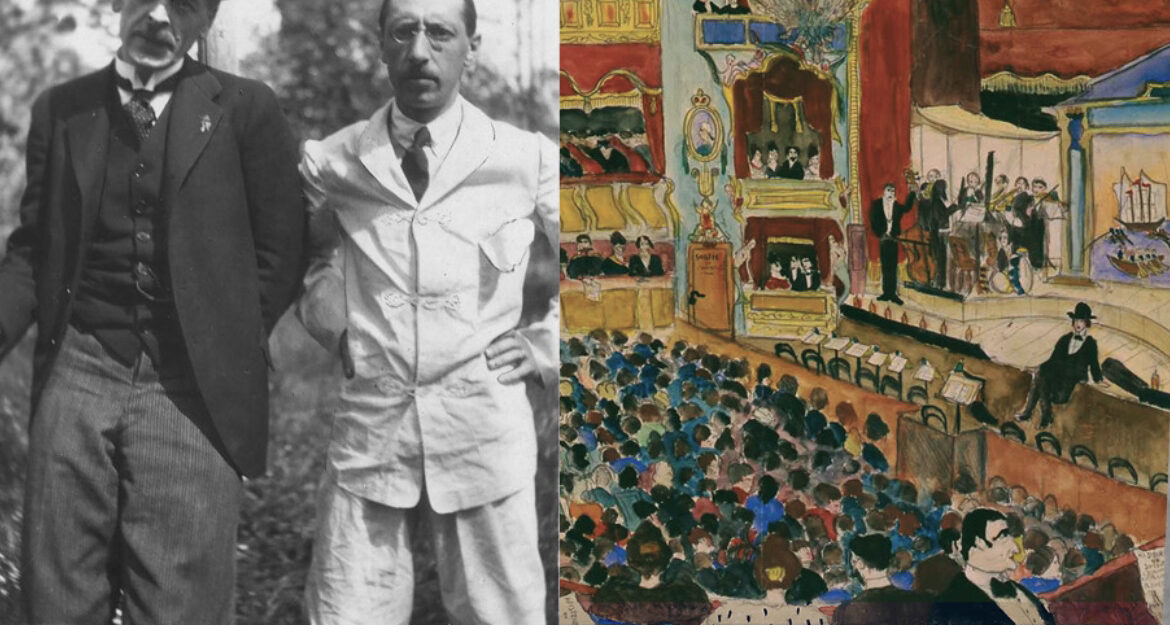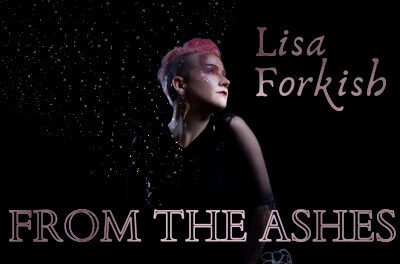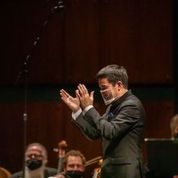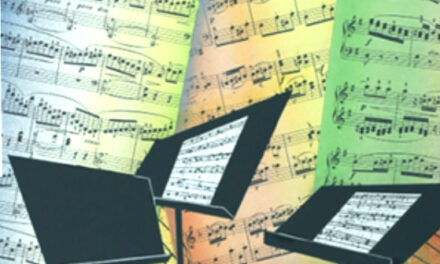By Randi Bjornstad
Actress and radio personality Storm Kennedy is thrilled to be part of of L’Histoire du Soldat at The Shedd Institute in downtown Eugene, but she and the other members of the cast and the musical group called microphilharmonic have to wait to perform it a bit longer than they had planned because of the recent snow/sleet episode that has stymied activities throughout Oregon.
The first performance, originally scheduled for Saturday, Jan. 20, has been scrapped, leaving two on the calendar — a 4 p.m. matinee on Sunday, Jan. 21, and a 7:30 evening show on Monday, Jan. 22.

Actress Storm Kennedy is the narrator of L’Histoire du Soldat with microphilharmonic at The Shedd
Kennedy’s role among the small cast, which includes “three actors, a dancer, and seven musicians — clarinet, bassoon, cornet/trumpet, trombone, percussion, violin, and double bass,” she said, is that of narrator.
The idea of doing L’histoire du Soldat came from Michael Anderson, himself a clarinetist and artistic director and founder of the chamber ensemble called microphilharmonic, Kennedy said.
It’s taken from a Russian folk tale titled The Runaway Soldier and the Devil, in which the soldier — also a musician — is on his way home from the war when he stops by the side of the road to rest, and begins to play his violin.
As the website maestroclassics.com succinctly describes it, “It is the story of a soldier, on leave from the army, who trades his old violin for a magic book that can tell the future and make him rich. He soon discovers, however, that he has made a deal with the Devil and that money does not bring happiness.”
The musical version came about in 1918 when Russian composer Igor Stravinsky, down on his fortunes in the days immediately after World War I and the Bolshevik Revolution in Russia, combined his earlier somewhat nationalistic musical style with other developing trends in other countries, including jazz and tango along with traditional waltz and even Ragtime, all of which play a part in L’Histoire du Soldat.
He collaborated that year with Charles-Ferdinand Ramuz to create the music-dance-narration that makes up the hour-long version that The Shedd will do. However, instead of Ramuz’s original French libretto, or text, this version uses an English translation done by Michael Flanders and Kitty Black in 1954 for the Edinburgh Festival in Scotland.
When the time came to put the show together, “They knew who they wanted for the musicians and the actors, but they still needed the narrator,” Kennedy recalled. “Kirk Boyd was going to be the director, and he called and left me a message and said he had this ‘crazy, wacky idea’ and would I be interested and to call him. “
Then she got a call, this time from Jim Ralph, executive director at The Shedd, “and he said, ‘Have you talked to Kirk? Hang up, call Kirk, and then call me back.’ And I said, ‘If you and Kirk both think I can do it, I say, yes.’ “
Despite numerous acting gigs in community theater, “This is my first time on stage at The Shedd,” Kennedy said. “I’m not a singer, or dancer, but I really wanted to work with this. The princess, the soldier, and the Devil all act and dance, and I am their voice when they have scenes with dialogue.”
She laughs. “When I told my mom I had been cast at The Shedd, she said, ‘Oh gosh, oh dear, oh no.’ “
Preparing for this production “is different from anything I have done before,” Kennedy said. “I had to read and read and read and read. I looked at videos from previous productions on YouTube. I studied music with Michael (Anderson) and Kirk (Boyd.
“When I said something didn’t click, Michael sat down with me and talked to me and taught me — and suddenly everything would open up. I learned so much, and I could hear what he was talking about, and the fear went away.”
Besides the joy of being part of this performance, the experience makes her want to share a few words with others who aspire to do something unfamiliar.
“Don’t be afraid if you don’t know something, and don’t pretend you do,” Kennedy said. “Regardless of your age and experience, put your ego aside, admit that you don’t know it all, and be open to learning something new and exciting.”
Production team
Along with Storm Kennedy as narrator, the cast of L’Histoire du Soldat includes Matthew Michaels as the soldier, Hanna Foshay as The Devil, and Kenady Conforth as the Princess.
Members of the orchestra are Michael Anderson (clarinet), Ben Greanya (cornet), Bryce Schmidt (cornet), Bailey Schmidt (trombone), Ian Kerr (percussion), Alice Blankenship (violin), and Tyler Abbott (double bass).
Director is Kirk Boyd with choreography by Kenady Conforth, lighting design by Michael Peterson, and costume design by Anna Björnsdotter, along with production manager Diego Ocampo, stage manager Zoë Pouliot, sound and lighting engineer Markus Johnson, and executive Producer James Ralph.
Onstage at The Shedd: L’Histoire du Soldat
When: 4 p.m. matinee on Sunday, Jan. 21 and evening at 7:30 p.m. on Monday, Jan. 22
Where: Jaqua Concert Hall, The Shedd Institute, 868 High St., Eugene
Show tickets: $20 to $39; discounts for students with current ID; youth free, available by telephone at 541-434-7000, at the ticket office at 868 High St., or online at theshedd.org
Shedd Dinner at Six: Approximately 6 p.m. on Sunday, Jan. 21 post-show, 6 p.m. pre-show on Monday, Jan. 22. Available by reservation, $27.75 for adults and $19.75 for children 9 years and younger; extra for wine, soft drinks and other beverages. Reservations available at 541-434-7000 or online at theshedd.org.












